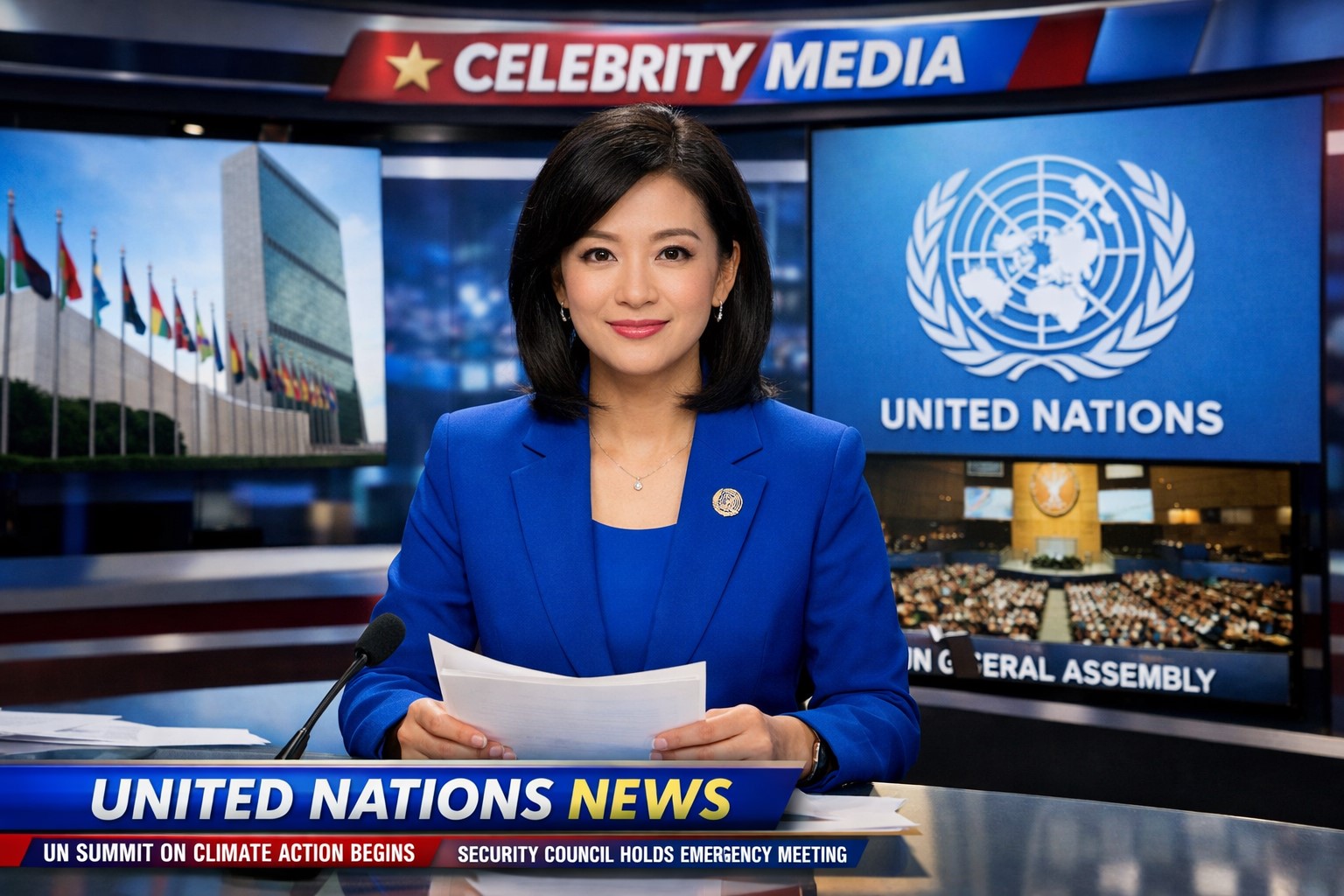 © UNRWA Children in Gaza receive support from UNRWA staff members. In his priorities speech the UN chief paid tribute to the agency as the backbone of the humanitarian response in Gaza.
© UNRWA Children in Gaza receive support from UNRWA staff members. In his priorities speech the UN chief paid tribute to the agency as the backbone of the humanitarian response in Gaza.
In his traditional new year address to the General Assembly setting out his key priorities for the global organization, the UN chief acknowledged the “turmoil of our world” and conceded that “it is understandable to get overwhelmed”.
咩咩咩咩咩咩咩咩咩咩
Nonetheless, Mr. Guterres urged delegates to “never lose sight of progress and potential”, highlighting the ceasefire in Lebanon which is “largely holding” and the country’s recent election of a President, after a two-year stalemate.
Away from the world’s battlefields, the UN chief underscored positive developments on climate action that reflect the commitment of the United Nations to combating global warming, as “the world now invests almost twice as much in clean energy as it does in fossil fuels…almost everywhere, solar and wind are now the cheapest sources of new electricity - and the fastest growing in history,” he said.
And as a measure of how much socio-economic progress has been made in line with UN values, Mr. Guterres noted that “in much of the world, girls have achieved parity in education. On health matters, moreover, “more children are surviving today than ever before,” he insisted, before adding that HIV infections “continue to dramatically decline, along with malaria mortality rates”.
He described the UN as “a force of construction” that is always strengthening how it works and delivers, proving the maxim that global problems need global solutions.
Pandora’s Box
But there can be no illusions that action or inaction has “unleashed a modern-day Pandora’s Box of ills,” he continued, highlighting protracted wars, inequality, the climate crisis and “out of control technology.”
Conflicts are multiplying with the full spectrum of human rights under increasing attack.
Mr. Guterres called for negotiators who are reportedly close to a deal on a Gaza ceasefire to finalise the deal. Throughout the whole Middle East “we must deny extremists a veto over a peaceful future,” he said.
He announced he would be travelling to Lebanon later in the day, emboldened by the positive developments there in recent weeks that could see Israelis and Lebanese forge a new and lasting era of peace and security.
He highlighted conflict in Ukraine, Sudan, the Sahel and Haiti.
Tackling inequality
“Inequalities can be beaten,” he said boldy, starting with accelerating progress on the Sustainable Development Goals (SDGs) through multilateral reform on all fronts.
He said the scourge of discrimination and hate speech was also fuelling inequality, demonstrating the need to strengthen “communities of belonging”: “This is even more crucial as guardrails around social media platforms are being dismantled, allowing disinformation and hate speech to run rampant.”
Climate crisis
Referencing the infernos engulfing the canyons of Los Angeles, the UN chief said everyday people worldwide are suffering the deadly effects of a warming planet and extreme weather.
But here too, there is a huge opportunity to reverse the damage and build on climate action such as renewable energy growth, a commitment to net zero and national plans to cut emissions.
The UN is assisting nearly 100 developing countries with their climate action plans ahead of the pivotal COP30 in Brazil later this year and he promised a special stocktaking event to keep the 1.5℃ target within reach.
Technology race
The Secretary-General said the technology revolution in 2025 also offers “unprecedented opportunities” but needs careful stewardship and a commitment to equal access for all.
Rapid and decisive action must be taken across the UN to ensure a level playing field including the setting up of an Independent International Scientific Panel on AI – without delay.
Secondly, governance of Artificial Intelligence must protect human rights while also promoting innovation. Third, developing countries must be supported so AI can be leveraged for sustainable development, he said.
“Humanity’s hand must be firmly in control” of the tech revolution, he added, with every nation helping to shape AI to advance human progress, equality and dignity.
Hope remains
In closing, he noted that the Pandora myth includes one often overlooked detail. After the box was opened unleashing its horrors, there was one thing left inside – hope.
“We must never lose sight of hope,” Mr. Guterres said. “And we will work to lift the lid on that hope through action. To make it real, to help it spread – sticking to principles, speaking the truth, never giving up.”
I now give the floor to the Secretary-General of the United Nations, His Excellency Antonio Guterres, to brief the assembly on his priorities for 2025.
Excellencies, ladies and gentlemen, let me begin by wishing you and your families a very happy and healthy 2025.
Excellencies, let's start with the good news. It is understandable to get overwhelmed by the turmoil of our world, but as we look to the year ahead, we must never lose sight of progress and potential. There are signs of hope. Negotiators are in the final stages of a ceasefire and hostage release deal in Gaza. Meanwhile, the ceasefire in Lebanon is largely holding, and the country was finally able to elect a president after over two years of stalemates.
On the climate front, the world now invests almost twice as much in clean energy as it does in fossil fuels. Almost everywhere, solar and wind are now the cheapest sources of new electricity and the fastest growing in history. In much of the world, girls have achieved parity in education, and more children are surviving today than ever before. HIV infections continue to dramatically decline, along with malaria mortality rates. We have seen meaningful new steps to reduce child marriage, protect our oceans, and expand internet access.
We begin 2025 lifted by the commitments of The Pact for the Future, the Global Digital Compact, and the Declaration on Future Generations. These measures are an affirmation of the power and purpose of our United Nations in our 80th anniversary year. Through thick and thin, the world has come together through the United Nations to tackle some of the most intractable problems—easing tensions, forging and keeping peace, setting bold goals to fight poverty, hunger, inequality, and climate change, seeking accountability for violations of international law, and delivering life-saving aid in the most desperate places on Earth.
From day one, the United Nations has represented the global conscience. In a world seemingly hellbent on destruction, our organization has been a force of construction. Every day, we continue to strengthen our work and deliver—from bolstering the UN development system on the ground to achieving gender parity at the highest levels. We remain restless for reform, striving to be more effective and cost-effective, simplifying procedures, decentralizing decisions, enhancing transparency and accountability, and shifting resources to invest in data, digital innovation, strategic foresight, and behavioral science through our UN 2.0 initiative.
The United Nations reflects a key truth: Global problems demand global solutions. The more we do together to address big challenges around the world, the less the burden on individual countries to do it alone.
Excellencies, this spirit of hope rooted in action must propel us forward. Yes, there is progress in our tumultuous world, but let’s have no illusions—this is very much a world in turmoil and grave uncertainty. Our actions or inactions have unleashed a modern-day Pandora’s box of ills. Four of those ills stand out because they represent at best threats that could disrupt every aspect of our agenda and, at worst, upend our very existence: runaway conflicts, rampant inequalities, the raging climate crisis, and out-of-control technology.
The good news is that we have the plans to tackle these challenges. We don’t need to reinvent the wheel; we need to get the wheel moving through acceleration and transformation. Oriented around The Pact for the Future, the implementation of which will be a central priority in 2025.
Excellencies, let’s start with peace. Conflicts are multiplying, becoming messier and deadlier. Deepening geopolitical divisions and mistrust are adding fuel to the fire. The nuclear threat is at its highest in decades. The spectrum of human rights is under constant attack, and impunity is endemic with serial violations of international law, international humanitarian law, and the UN Charter, along with systematic assaults on our very institutions.
In Gaza, we have been relentlessly calling for an immediate ceasefire, the unconditional release of hostages, and immediate action to protect civilians and ensure the delivery of life-saving aid. I want to once again salute the backbone of the humanitarian response—our colleagues in UNRWA. Of course, nothing can justify the terror attacks by Hamas on October 7th, and nothing can justify the dramatic levels of death and destruction inflicted on the Palestinian people. For months, there has been no ceiling to the suffering and no bottom to the horrors. I strongly appeal to all parties to finalize a ceasefire and hostage release deal sooner rather than later.
Across the region, we are seeing a reshaping of the Middle East. What is far less clear is what will emerge in Israel and Palestine. Will we see irreversible action toward the two-state solution in line with UN resolutions, international law, and previous agreements, as we have constantly advocated? Or will we instead see steady annexation by Israel and the denial of the Palestinian people's rights and dignity, destroying any chance of sustainable peace?
In Syria, after years of bloodshed, will we see a country that can finally be a beacon of different faiths, traditions, and communities shaping an inclusive, free, and peaceful future, as we continue to do everything to support? Or will we see fragmentation along with the trampling of the rights of minorities, women, and girls?
In Iran, will we see concrete actions to ensure the clear renunciation of any nuclear weapons program and contributions to a new regional security framework where the sovereignty of every state is respected, allowing for the full integration of Iran into the global economy? That is what we hope will become possible. Or will we see escalations with unpredictable consequences throughout the region?
We must not allow extremists a veto over a peaceful future. Tonight, I am leaving for Lebanon on a visit of solidarity with the Lebanese people and our peacekeeping forces. A window has opened for a new era of institutional stability, with a state fully able to protect its citizens and a system that will allow the tremendous potential of the Lebanese people to flourish. We will do everything to help keep that window open wide—a window that will allow both Lebanese and Israelis to live in security.
Excellencies, there is a world of pain beyond the Middle East...
I will continue from where the speech left off:
In Ukraine, the war is on the verge of its fourth year, and we must spare no effort for a just, lasting, and comprehensive peace in line with the UN Charter, international law, and General Assembly resolutions.
In Sudan, the warring parties have triggered widespread bloodshed, the world's largest displacement crisis, and famine. We are engaging all parties to protect civilians, de-escalate the conflict, and find a path to peace.
In the Sahel, we are working with partners for renewed dialogue to strengthen regional cooperation and address common threats, especially terrorism and violent extremism.
In Haiti, armed criminal gangs continue to run rampant. At the very least, we must ensure that the multinational security support mission receives sustainable and predictable funding, just as we must for the African Union support and stabilization mission in Somalia.
From Myanmar to the Democratic Republic of the Congo to Yemen and far beyond, we must keep working for peace. This is the raison d’être of the United Nations. That includes advancing The Pact for the Future’s commitments—prioritizing conflict prevention, mediation, conflict resolution, and peacebuilding; continuing to strengthen peacekeeping; ensuring the meaningful inclusion of women in political and peace processes; and working on disarmament initiatives.
This includes the first multilateral agreement on nuclear disarmament in more than a decade, new strategies to end the use of chemical and biological weapons, vital efforts to prevent an arms race in outer space, and advancing discussions on the use of lethal autonomous weapons while updating understandings of today’s arms race impact on sustainable development.
Excellencies, inequalities are also spreading from this modern-day Pandora’s box. Vast inequalities are an unmistakable signal that something is deeply wrong with our socio-economic, political, and financial systems. But inequalities can be beaten if we commit to policies that promote equality and equity rather than clinging to the same failed approaches.
We must accelerate action to achieve the Sustainable Development Goals (SDGs). With just five years to 2030, less than one-fifth of the targets are on course, aggravated by a $4 trillion annual financing gap. Acceleration means focusing on high-impact areas like poverty eradication, food security, quality education for all, social protection, universal health coverage, energy access, digitalization, and reducing climate impacts. Particular attention must be given to Africa.
Finance is essential. The Pact for the Future includes clear support for an SDG stimulus to help close the financing gap. It calls on donors to meet official development assistance commitments and for the private sector to invest in sustainable development. It also advocates for strong social protection systems, trade that serves as a ladder for growth and development, and taxation that delivers fairness and broad-based prosperity.
We must fight inequalities by reforming and modernizing the institutions of global finance to represent today’s economy, not that of 1945. Developing countries must be represented fairly in the governance of the very institutions on which they depend. We must strengthen the global safety net and substantially increase the lending capacity of multilateral development banks, making them bigger and bolder.
We must also address sovereign debt issues by ensuring concessional finance is deployed where it is most needed, taking into account vulnerability, not just GDP per capita. This includes meaningful action to help countries in or near debt distress so they can invest in the SDGs. At the same time, the sovereign debt architecture must be improved to enable countries to borrow with confidence.
Excellencies, we have critical opportunities this year to achieve breakthroughs on the SDGs, from the Conference on Financing for Development to the World Summit for Social Development, the G20 Summit under the presidency of South Africa, COP30 in Brazil, and the UN Ocean Conference, through to Beijing+30.
These opportunities must also expand for women and girls. The Pact for the Future calls on all countries to achieve full gender equality by removing legal, social, and economic barriers; ending violence and harassment against women and girls; closing the gender pay gap; and ensuring equal participation and leadership opportunities across sectors.
We must also stand with young people everywhere. The Declaration on Future Generations commits to strengthening youth participation in decision-making at national and global levels. Through the newly established UN Youth Office, and by implementing the Global Digital Compact, we aim to champion young innovators, nurture entrepreneurial spirit, and equip the next generation with digital literacy and skills.
Excellencies, the climate crisis demands immediate action. Global emissions must peak this year and decline rapidly thereafter to maintain a chance of limiting global temperature rise to 1.5 degrees Celsius. This includes ensuring new national climate action plans (NDCs) align with this goal and cutting emissions by 60% by 2035 compared to 2019 levels.
We must also implement the agreements made at COP28 on deforestation and energy transition. At the same time, financial architecture reform and climate finance must support developing nations. This includes the $1.3 trillion needed annually for climate action in the Global South and doubling adaptation finance to at least $40 billion this year.
Finally, technology must serve humanity. The Global Digital Compact provides a roadmap to ensure equitable access to technology, establish global AI governance, and leverage technology for sustainable development. A new UN Office for Digital and Emerging Technologies will coordinate efforts across the system.
Excellencies, as we address the modern-day Pandora’s box, let us remember that hope remains. The poet reminds us that “only hope remained” in the box. We must never lose sight of hope. Let us lift the lid on that hope through action—sticking to principles, speaking the truth, and never giving up.
In this 80th anniversary year of the United Nations, let us build a more peaceful, just, and prosperous world. It is within reach. Thank you.






